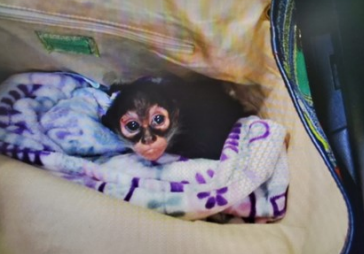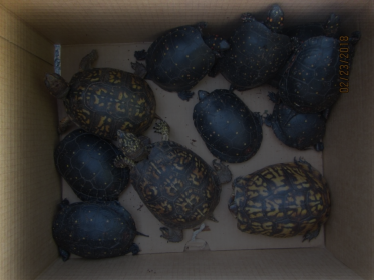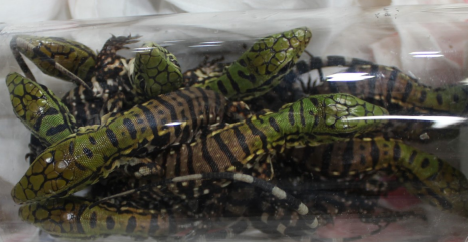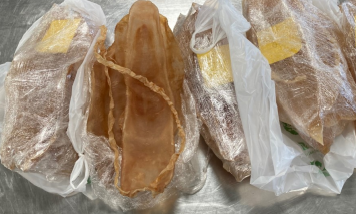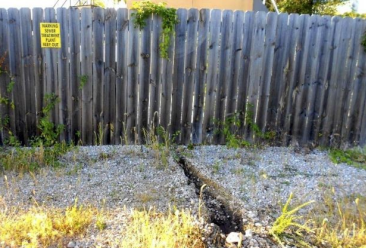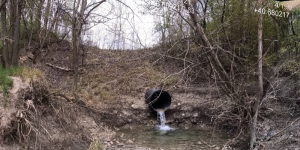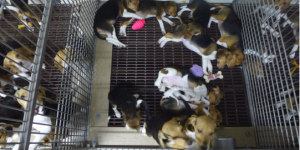Blog Post
Environmental Crimes Bulletin February 2022
In this issue:
- United States v. Pro Diesel Inc., No. 1-22-CR-00062; United States v. McDermid Sales & Service, No. 1-22-CR-0065; United States v. Endrizzi Diesel LLC, No. 1-22-CR-00064 (D. Colo.), AUSA Rebecca S. Weber and SAUSA Linda S. Kato
- United States v. Wayne Bailey, et al., No. 2:22-CR-00016 (D. Vt.), AUSA Joseph Perella
- United States v. Joshua M. Franklin, No. 1:22-CR-00006 (W.D. Ky.), ECS Senior Trial Attorney Dan Dooher and ECS Trial Attorney Ryan Connors
- United States v. Brian T. Rogers, No. 8:21-CR-00618 (D.S.C.), AUSA Winston Holliday
- United States v. Guadalupe Ponce-Betanzaos, et al., Nos. 21-CR-003338, 003353 (S.D. Calif.), ECS Trial Attorney Stephen DaPonte and AUSA Melanie Pierson
- United States v. Wayne Robert Banks, Jr., No. 3:21-CR-00511 (N.D. Ohio), AUSA Jody King
- United States v. First Capital Insulation, Inc., et al., No. 1:20-CR-00020 (M.D. Pa.), ECS Senior Litigation Counsel Howard Stewart, AUSA William Behe, SAUSA Patricia Miller, and ECS Paralegal Claudia Garin
- United States v. Jose Francesco Munoz Di Rocco, et al., No. 21-CR-20361 (S.D. Fla.), AUSA Marty Elfenbein
- United States v. Klissman Zavala, et al., No. 3:21-CR-00331 (S.D. Calif.), AUSA Melanie Pierson
- United States v. Ashtyn Rance, No. 7:21-CR-00005 (M.D. Ga.), ECS Trial Attorney Ryan Connors, AUSA Sonja Profit, and ECS Paralegal Chloe Harris
- United States v. Daisuke Miyauchi, et al., Nos. 21-CR-20513, 22-CR-20025 (S.D. Fla.), ECS Trial Attorney Banu Rangarajan, AUSA Tom Watts-FitzGerald, and ECS Paralegal Claudia Garin
- United States v. John Fansler, et al., Nos. 4:20-CR-00450, 4:20-CR-00449 (S.D. Tex.), AUSA Steven Schammel and SAUSA Kristina Gonzalez
- United States v. Kenneth Fulton, No. 5:21-CR-00075 (W.D. Okla.), AUSA Charles W. Brown
- United States v. Cesar Alberto Garcia, No. 3:20-CR-01380 (S.D. Calif.), ECS Trial Attorney Stephen DaPonte and AUSA Melanie Pierson
- United States v. Big Lake Gas Plant L.P., et al., No. 6:21-CR-00057 (N.D. Tex.), AUSA Sean Taylor
- United States v. Marcos Esteban Gonzalez Acedo, No. 21-CR-01838 (S.D. Calif.), AUSA Melanie Pierson
- United States v. Jarvis Lockett, et al., Nos. 5:21-CR-00003, 00040 (M.D. Ga.), ECS Trial Attorney Banu Rangarajan, AUSA William Keyes, and ECS Law Clerks Amanda Backer and Nate Borelli
- United States v. Brian Scheiter, No. 2:21-CR-04065 (W.D. Mo.), AUSA Michael S. Oliver
- United States v. Jerrid Maloy, et al., Nos. 3:21-CR-08146, 3:18-CR-08333 (D. Ariz.) AUSA Paul Stearns, with assistance from ECS Trial Attorney Ryan Connors
- United States v. William S. Scott, et al., Nos. 6:20-CR-00022, 00017, 00035 (S.D. Ga.), AUSA Xavier A. Cunningham and SAUSA Jessica Rock
United States v. Pro Diesel Inc., No. 1-22-CR-00062; United States v. McDermid Sales & Service, No. 1-22-CR-0065; United States v. Endrizzi Diesel LLC, No. 1-22-CR-00064 (D. Colo.), AUSA Rebecca S. Weber and SAUSA Linda S. Kato
On February 15 and 17, 2022, prosecutors charged three defendants in separate informations for violating the Clean Air Act (CAA). The defendants own garages and/or fleets of trucks in three different states: Pro Diesel is located in Des Moines, Iowa; McDermid is located in Oconto Falls, Wisconsin; and Endrizzi operates out of Bolivar, Missouri. The defendants disabled hardware emission controls, including diesel particulate filters and catalytic converters on Class 8 heavy duty semi-trucks. To complete the process, they hired a garage located in Colorado that specialized in remotely “tuning,” or overriding, the on-board diagnostic (OBD) computer software systems. OBD functions include monitoring hardware emission controls on vehicles to ensure that they are operating properly. As such, OBDs are “monitoring devices” that are required to be maintained under the CAA. By hiring the garage in Colorado to tune the OBDs to prevent them from detecting the emission control malfunctions, the defendants violated the CAA by tampering with a monitoring device (42 U.S.C. § 7413(c)(2)(C)). In total, the defendants deleted the emission control systems and “tuned” the OBDs on 126 vehicles.
The United States Environmental Protection Agency Criminal Investigation Division and the Colorado Office of the Attorney General conducted the investigation.
United States v. Wayne Bailey, et al., No. 2:22-CR-00016 (D. Vt.), AUSA Joseph Perella
On February 14, 2022, prosecutors charged Wayne Bailey and Louis Bates with abandoning a junk boat and setting it adrift in the Missisquoi National Wildlife Refuge on the Missisquoi River (16 U.S.C. § 668dd(f)(l)).
In the summer of 2021, Bailey purchased a 19-foot Bayliner, circa 1989, for $150. Shortly thereafter, Bailey removed and sold the engine. Rather than paying to properly dispose of the boat, Bailey decided set it adrift on the Missisquoi River. Bailey recruited Bates to tow the boat to the river.
During the evening of July 15, 2021, Bates towed the boat to Louie’s Landing boat ramp on the Missisquoi National Wildlife Refuge, with Bailey following in his own vehicle. Bates backed the trailer into the river, and Bailey unhooked the boat to set it adrift. U.S. Fish and Wildlife (FWS) personnel discovered the boat the following day, and spent more than $1,000 to properly dispose of the boat.
The U.S. Fish and Wildlife Service conducted the investigation.
United States v. Joshua M. Franklin, No. 1:22-CR-00006 (W.D. Ky.), ECS Senior Trial Attorney Dan Dooher and ECS Trial Attorney Ryan Connors
On February 9, 2022, prosecutors charged Joshua M. Franklin with violating the Clean Water Act for discharging oil and brine water into local creeks (33 U.S.C. §§ 1311(a), 1319(c)(2)(A)).
Franklin worked as an operator at an oil lease tank battery in Columbia, Kentucky. An oil tank battery is a group of tanks that are connected to receive crude oil production from a well or a producing lease. Franklin’s duties included ensuring that employees separate brine water (a waste product generated during oil production) from the oil before delivering to customers.
On August 22, 2018, the oil/water separator used to remove brine water malfunctioned. As a result, Franklin attached a conduit to the bottom of the oil tank and placed the open end of the conduit yards from a nearby creek. Franklin opened the tank valve, allowing a mixture of brine water and oil to discharge from the tank. With the valve still open, Franklin left the site. Approximately 100 barrels (about 4,000 gallons) of the oily mixture discharged into a nearby creek and eventually flowed into connecting tributaries.
The U.S. Environmental Protection Agency Criminal Investigative Division and the Kentucky Department of Environmental Protection conducted the investigation.
United States v. Brian T. Rogers, No. 8:21-CR-00618 (D.S.C.), AUSA Winston Holliday
On February 16, 2022, Brian T. Rogers d/b/a Rogers Environmental LLC (Rogers), pleaded guilty to violating the Clean Air Act and making a false statement (18 U.S.C. § 1001; 42 U.S.C § 7413(c)(2)(A)).
In May 2018, Rogers performed an asbestos inspection for Mavin Construction on the Anderson University campus. In his inspection report, Rogers denied finding any asbestos-contaminated material. He also claimed that a lab conducted Transmission Electron Microscope (TEM) analysis, but failed to document those results. South Carolina regulations require TEM analysis on one sample of any non-friable, organically bound material that tests negative under Polarized Light Microscopy (PLM) analysis.
A Southeast Environmental Microbiology Laboratories (SEEML) Lab Technician stated that Rogers initially requested TEM analysis, but opted for PLM instead when asked how quickly he needed the results. Per Rogers’ request, The technician changed the analysis on the chain of custody form, by marking out “TEM” and writing “PLM” in its place. TEM analysis costs more and takes longer, because it has to go to another lab for analysis.
Based upon Roger’s report, subcontractors began demolishing the property. On June 20, 2018, while removing flooring from a bathroom, Wilma's Petroleum and Demolition (WPD) suspected that floor tile and black mastic under the top layer of flooring contained asbestos. The following day, Rogers returned to the site to collect two samples, reporting back to Mavin that the lab had not detected any asbestos in those samples.
WPD decided to submit its own set of samples to the lab from the same tile and mastic. The lab provided a report showing eight percent asbestos in one sample and two percent in the other sample. After state environmental agents confronted Rogers with this evidence, he admitted using his computer to change the lab results for the samples he submitted, and giving Mavin the falsified document.
During a subsequent interview with federal agents in March 2020, Rogers claimed ignorance as to the absence of TEM testing and why the lab changed the analyses to PLM. He also sent a follow-up email to those agents saying: “Will reiterate, don't remember why lab didn't run the TEM samples on the floor glue. Don't remember why we didn't have them run.”
The U.S. Environmental Protection Agency Criminal Investigation Division and the South Carolina Department of Health and Environmental Control conducted the investigation.
United States v. Guadalupe Ponce-Betanzaos, et al., Nos. 21-CR-003338, 003353 (S.D. Calif.), ECS Trial Attorney Stephen DaPonte and AUSA Melanie Pierson
On February 15, 2022, Isabel Betanzaos pleaded guilty to conspiring to violate the Federal Insecticide, Fungicide, and Rodenticide Act (18 U.S.C. § 371). Sentencing is scheduled for May 4, 2022. Guadalupe Ponce-Betanzaos was sentenced to complete a one-year term of probation and pay $2,500 in restitution, after previously pleading guilty to the same charge.
On November 1, 2021, authorities apprehended the defendants as they attempted to drive into the United States from Mexico with 18 one-liter bottles of undeclared liquid pesticides (Metaldane 600).
Those involved in clandestine marijuana grows use illegal pesticides to cultivate unregulated marijuana on both public and private land in the United States.
The U.S. Environmental Protection Agency Criminal Investigation Division and Homeland Security Investigations conducted the investigation.
United States v. Wayne Robert Banks, Jr., No. 3:21-CR-00511 (N.D. Ohio), AUSA Jody King
On February 14, 2022, Wayne Robert Banks, Jr., pleaded guilty to destruction of a vessel, depositing refuse in navigable waters, obstructing navigable waters, and failing to mark or light a sunken vessel (18 U.S.C. § 2274; 33 U.S.C. §§ 407, 409, 411). Sentencing is scheduled for June 15, 2022.
On October 29, 2020, Banks sunk and destroyed a 24-foot Reinell boat within navigable channels of the Maumee River. Banks failed to immediately mark the sunken craft with a buoy, beacon, or light. He further disposed of refuse materials, including bottles, electronic equipment, batteries, cardboard and other garbage into the river.
The U.S. Coast Guard conducted the investigation.
United States v. First Capital Insulation, Inc., et al., No. 1:20-CR-00020 (M.D. Pa.), ECS Senior Litigation Counsel Howard Stewart, AUSA William Behe, SAUSA Patricia Miller, and ECS Paralegal Claudia Garin
On February 9, 2022, Lobar, Inc., pleaded guilty to violating the Clean Air Act for its involvement in an illegal demolition project (42 U.S.C. § 7413(c)(1)).
In January 2014, the Berwick Area School District (BASD) purchased a former weaving mill property in order to demolish it and build a new elementary school on the property. BASD hired Lobar, Inc., as the general contractor. Lobar assigned Dennis Lee Charles, Jr., an experienced construction superintendent, as the on-site manager. Lobar hired two subcontractors: M & J Excavation (to conduct the demolition after abating the asbestos) and First Capital Insulation, Inc. (FCI), to conduct the asbestos abatement. John A. Sidari, Jr., owns M&J. FCI co-owner Richard Yingling, Jr., placed Ty Allen Barnett on-site as the asbestos crew supervisor. FCI has a history of asbestos violations with the U.S. Environmental Protection Agency (EPA) and the Occupational Safety and Health Administration.
Prior to purchasing the property, the BASD obtained an environmental assessment identifying hazardous substances, including asbestos, located in the old facility. An environmental consultant confirmed the existence of asbestos. Officials shared the findings of both assessments with Lobar and its subcontractors responsible for asbestos removal and demolition. Despite this, the demolition went forward without properly removing the asbestos.
In 2020, the government charged the three companies and four individuals in a ten-count indictment with violating the Clean Air Act Asbestos National Emission Standards for Hazardous Air Pollutants (NESHAP). Trial against the other defendants is scheduled for June 13, 2022.
The U.S. Environmental Protection Agency Criminal Investigation Division conducted the investigation.
United States v. Jose Francesco Munoz Di Rocco, et al., No. 21-CR-20361 (S.D. Fla.), AUSA Marty Elfenbein.
On February 28, 2022, a court sentenced Jose Francesco Munoz Di Rocco to pay a $40,000 fine, time served, followed by three years’ supervised release with a special condition of 10 months’ home confinement. Di Rocco also will perform 500 hours of community service after pleading guilty to conspiracy to violate the Lacey Act (18 U.S.C. § 371). Co-defendant Francisco Manuel Rodriquez was previously sentenced to time served, three years’ supervised release with a special condition of six months’ home detention, and perform 250 hours of community service, after pleading guilty to conspiracy.
Between February 2018 and July 2018, the two men imported, sold, and transported three species of spiny-tailed skinks into the United States from Australia in violation of the Lacey Act.
Di Rocco and Rodriguez traveled to Australia to capture spiny-tailed skinks in their native habitat and import them into the United States for resale. Once in Western Australia, Munoz and Rodriguez captured various species of spiny-tailed skinks and prepared them to ship to the United States, knowing it was illegal to export the wildlife from Australia. While in Australia, Munoz mailed two packages containing a total of 33 spiny-tailed skinks, one to Miami, Florida, and the other to Medford, Oregon. In order to conceal the illegally imported wildlife, Munoz packaged the reptiles inside gift-wrapped containers with other souvenirs without declaring them to Customs nor submitting any paperwork to the U.S. Fish and Wildlife Service. Australian law prohibits the exportation of its native wildlife.
The U.S. Fish and Wildlife Service conducted the investigation with assistance from the Australian Border Force.
United States v. Klissman Zavala, et al., No. 3:21-CR-00331 (S.D. Calif.), AUSA Melanie Pierson.
On February 28, 2022, a court sentenced the final defendant in this case involving the smuggling of a Mexican spider monkey (18 U.S.C. §§ 371, 545). Klissman Zavala was sentenced to time-served, followed by three years’ supervised release, and to pay $19,612 in restitution, joint and several.
On December 31, 2020, David Sotelo and Jennifer Madrigal entered the United States from Mexico at the San Ysidro Port of Entry with an undeclared juvenile Mexican spider monkey. After inspectors turned them away, they returned to Mexico with the monkey. On the way back, Madrigal texted Uribe Alonso, who directed her to take the monkey to a residence in Mexico. On January 4, 2021, Alonso and Zavala entered the United States from Mexico with the same monkey hidden in the center console of their vehicle. A search of Alonso’s phone revealed he purchased the monkey on December 30, 2020. Alonso crossed into the United States within 15 minutes of Sotelo and Madrigal on December 31, 2020. None of the defendants possessed any appropriate documentation for the animal.
Sotelo was sentenced to time served, followed by two years’ supervised release. He is jointly and severally liable for the restitution. Madrigal was sentenced to time-served, followed by three years’ supervised release and held jointly responsible for the restitution. Prosecutors dismissed all charges against Alonso following his death from COVID.
Authorities placed the spider monkey at the Moorpark Zoo, which is part of a zookeepers college.
The U.S. Fish and Wildlife Service, Homeland Security Investigations, and the U.S. Customs and Border Protection, conducted the investigation.
United States v. Ashtyn Rance, No. 7:21-CR-00005 (M.D. Ga.), ECS Trial Attorney Ryan Connors, AUSA Sonja Profit, and ECS Paralegal Chloe Harris.
On February 23, 2022, a court sentenced Florida reptile dealer Ashtyn Rance to 33 months’ incarceration, followed by three years’ supervised release. Rance also will pay a $4,300 fine to the Lacey Act Reward Fund and is prohibited from owning, possessing, or selling wildlife while under supervision. Rance pleaded guilty to Lacey Act trafficking and possession of a firearm by a convicted felon (16 U.S.C. §§ 3372 (a)(2), (d)(2), 3373(d)(1), (d)(3)(A)(ii); 18 U.S.C. §§ 922(g)(1),924(a)(2)).
On February 22, 2018, Rance shipped three eastern box turtles and 16 spotted turtles from Valdosta to a customer in Florida, in a package falsely labeled as containing tropical fish and common lizards. A customer paid $3,300 for the turtles Rance knew were on their way to China.
On May 10, 2018, he shipped 15 Gaboon vipers from Valdosta to Florida. The snakes were worth approximately $900 and also headed to a buyer in China. He falsely labeled the package as containing harmless reptiles and ball pythons. Rance legally imported 100 Gaboon vipers and other venomous snakes from Africa to Atlanta. He received a special permit to transport the snakes out of Georgia, but he later returned to Valdosta with 16 vipers.
Additionally, Rance, a convicted felon, possessed a Bushmaster Carbine .223 caliber rifle and Mossberg 12-gauge shotgun.
This case is part of Operation Middleman, a U.S. Fish and Wildlife Service investigation into the intermediaries who facilitate wildlife trafficking between the United States and China. The U.S. Fish and Wildlife Service; the Georgia Department of Natural Resources; and the Bureau of Alcohol, Tobacco, Firearms, and Explosives conducted the investigation.
United States v. Daisuke Miyauchi, et al., Nos. 21-CR-20513, 22-CR-20025 (S.D. Fla.), ECS Trial Attorney Banu Rangarajan, AUSA Tom Watts-FitzGerald, and ECS Paralegal Claudia Garin.
On February 22, 2022, a court sentenced Daisuke Miyauchi to 13 months’ incarceration, followed by two years’ supervised release and a $10,000 fine. Miyauchi pleaded guilty to conspiracy, smuggling and violating the Lacey Act for smuggling protected reptiles (18 U.S.C. §§ 371, 554; 16 U.S.C. §§ 3372(d)(1), 3373(d)(3)(A)(i)).
Miyauchi owns and operates Maniac Reptiles, located in Yokohama, Japan. Miyauchi conspired with Chun Ku, owner and operator of Dynasty Reptiles in Miami, Florida, to use Ku’s Convention on International Trade in Endangered Species (CITES) “Master File” permit to smuggle various CITES II-protected reptiles out of the United States, including ball pythons, blood pythons, Mexican Burrowing/New World pythons, and tegus.
Miyauchi travelled frequently to the United States to attend reptile shows and purchase reptiles for his business. He contacted Ku and provided details regarding his purchase plans in advance to allow Ku time to complete the fraudulent paperwork. After purchasing the reptiles, Miyauchi transported them to Miami to prepare them for shipment to Japan. Upon arriving in Miami, Miyauchi obtained the fraudulent paperwork from Ku and submitted it to the U.S. Fish and Wildlife Service using a customs broker. Between October 2014, and August 2021, Ku illegally exported 39 shipments to Miyauchi under his Master File permit. The total retail value of CITES II-protected species smuggled by Miyauchi is approximately $3,442,712.
Further investigation revealed that Ku made a similar arrangement with at least one other co-conspirator for whom Ku fraudulently exported at least 20 shipments of reptiles under his Master File permit. The total retail value of CITES II-protected species smuggled by Ku is approximately $5,134,167.
The U.S. Fish and Wildlife Service conducted the investigation.
United States v. John Fansler, et al., Nos. 4:20-CR-00450, 4:20-CR-00449 (S.D. Tex.), AUSA Steven Schammel and SAUSA Kristina Gonzalez
On February 22, 2022, a court sentenced John Fansler to time served. The owner of HP Gas Products, LLC. (HP Gas), Fansler pleaded guilty to violating the Resource Conservation and Recovery Act for storing hazardous wastes without a permit (42 U.S.C. § 6928(d)(2)(A)).
Fansler and Michael Anaker owned and operated HP Gas, an industrial gas producing company. Between 2009 and 2010, the company manufactured and shipped chemicals, including hydrogen cyanide and cyanogen chloride. Employees stored hazardous waste generated from the production of these chemicals on-site in drums and barrels, without a permit.
Following an explosion at the facility in February 2018, local officials discovered a number of rusted gas cylinders, one of which exploded leaking an unknown poisonous gas. Investigators inventoried close to 1,200 containers, many severely degraded and leaking. The U.S Environmental Protection Agency cleaned up the site at a cost of approximately $4.4 million.
The court dismissed the case against Anaker following Fansler’s statement that Anaker knew nothing about the permitting process and that Fansler was solely responsible for it.
The U.S. Environmental Protection Agency Criminal Investigation Division conducted the investigation.
United States v. Kenneth Fulton, No. 5:21-CR-00075 (W.D. Okla.), AUSA Charles W. Brown
On February 22, 2022, a court sentenced Kenneth Fulton to pay a $10,000 fine and complete a two-year term of probation. Fulton pleaded guilty to violating the Clean Water Act for tampering with a monitoring method (33 U.S.C. § 1319(c)(4)).
Fulton worked as a Veolia Water North America (Veolia) Project Manager for the City of El Reno, Oklahoma, Wastewater Treatment Plant (WWTP). Between September 2019 and February 2020, Fulton collected grab samples of treated wastewater near the El Reno WWTP effluent discharge point to test for E.coli. He mixed the grab sample with a bleach/ water mixture to effectively kill off or significantly reduce the amount of E.coli present. Fulton submitted the fraudulent samples to the laboratory knowing that the laboratory would only detect levels of E. coli well below the permitted limits. He then reported the laboratory results to the U.S. Environmental Protection Agency and the Oklahoma Department of Environmental Quality.
The U.S. Environmental Protection Agency Criminal Investigation Division and the Oklahoma Department of Environmental Quality conducted the investigation.
United States v. Cesar Alberto Garcia, No. 3:20-CR-01380 (S.D. Calif.), ECS Trial Attorney Stephen DaPonte and AUSA Melanie Pierson
On February 17, 2022, a court sentenced Cesar Alberto Garcia to 60 days’ incarceration, and to pay $1,476 in restitution. Garcia previously pleaded guilty to smuggling (18 U.S.C. § 545).
Authorities apprehended Garcia in January 2020, as he attempted to smuggle the following Mexican pesticides into the United States: 12 bottles of Tramofos 600, three bottles of Malithion 1000, and three 1-kilogram bags of Granelit 200 (a granular form of Malithion).
Those involved in clandestine marijuana grows use illegal pesticides to cultivate unregulated marijuana on both public and private land in the United States.
The U.S. Environmental Protection Agency Criminal Investigation Division and Homeland Security Investigations conducted the investigation.
United States v. Big Lake Gas Plant L.P., et al., No. 6:21-CR-00057 (N.D. Tex.), AUSA Sean Taylor.
On February 17, 2022, a court ordered Big Lake Gas Plant L.P., to pay a $3 million fine after pleading guilty to one count of negligent endangerment and one count of violating the Clean Air Act (CAA) (42 U.S.C. § 7413(c)(4),(c) (1)). This is part of a larger case involving five West Texas Gas, Inc., subsidiaries. The companies will spend approximately $5 million on compliance measures to resolve allegations that they violated CAA chemical accident prevention requirements at several of their natural gas processing plants.
A civil settlement requires the subsidiaries to take steps to prevent chemical accidents and improve safety at eight natural gas processing plants. Seven plants are located in Texas and one is in New Mexico. The plants use a variety of chemical processes containing toxic substances and flammable hydrocarbons, such as butane, methane, and propane.
The civil complaint states that WTG Gas Processing L.P., WTG South Permian Midstream, LLC, and Davis Gas Processing, Inc., violated Section 112(r) of the CAA and the related chemical accident prevention regulations. The Environmental Protection Agency initiated an investigation in November 2015, following a catastrophic fire that killed an employee at WTG Gas Processing’s East Vealmoor Gas Plant in Coahoma, Texas. The fire caused the release of thousands of pounds of flammable and toxic substances into the air. Additional fires, resulting in millions of dollars of damage, occurred at some of the companies’ other plants, and another employee died in April 2018 from a gas leak. The criminal case stems from this incident.
In April 2018, the plant negligently released approximately 525 pounds of hydrogen sulfide into the ambient air. One employee, identified in court documents by the initials C.T., died as a result of exposure sustained while working at the plant. Another employee, identified by the initials G.T., was injured while trying to assist C.T. The company further admitted that it knowingly failed to properly update its risk management plan following the incident.
The U.S. Environmental Protection Agency Criminal Investigation Division conducted the investigation, with assistance from the Texas Environmental Enforcement Task Force.
United States v. Marcos Esteban Gonzalez Acedo, No. 21-CR-01838 (S.D. Calif.), AUSA Melanie Pierson.
On February 14, 2022, a sentenced Marcos Esteban Gonzalez Acedo to eight months’ time-served, followed by years’ supervised release, and to pay $3,000 in restitution. Acedo pleaded guilty smuggling 27 Totoaba fish bladders into the United States from Mexico (18 U.S.C. § 545).
Authorities apprehended Gonzalez June 2021, as he entered the United States from Mexico at the Otay Mesa Port of Entry. During a vehicle inspection, an inspector noticed two partially concealed shopping bags under the front seat. After examining the contents, an agricultural inspector said the bags contained dried fish swim bladders. A U.S. Fish and Wildlife official confirmed the bladders belonged to Totoaba macdonaldi fish, a critically endangered species. Inspectors found an additional fifteen dried Totoaba fish bladders in the van’s rear overhead compartment.
Gonzalez did not possess any paperwork or licenses permitting him to import or export any fish or wildlife, and he claimed a friend asked him to bring “dried fish” into the United States for him. He also said he knew Totoaba were protected, but did not believe the fish bladders in the bags belonged to this species. Officials estimated the black market value for these bladders at approximately $270,000.
The U.S. Fish and Wildlife Service and the U.S. Customs and Border Patrol conducted the investigation.
United States v. Jarvis Lockett, et al., Nos. 5:21-CR-00003, 00040 (M.D. Ga.), ECS Trial Attorney Banu Rangarajan, AUSA William Keyes, and ECS Law Clerks Amanda Backer and Nate Borelli
On February 1, 2022, a court sentenced Jarvis Lockett to 10 years’ incarceration, followed by three years’ supervised release. Christopher Raines was sentenced to serve 135 months’ imprisonment, five years’ supervised release, and must pay a $10,000 fine. The two pleaded guilty to dog fighting and drug distribution charges resulting from an investigation into a significant multi-state dog fighting and cocaine trafficking ring (18 U.S.C. §§ 371, 49; U.S.C. §§ 2156(a)(1), (b); 21 U.S.C. §§ 841, 844, 846).
Between May 2019 and February 2020, this criminal organization operated out of Roberta, Georgia, into North Georgia, Florida, and Alabama. In February 2020, law enforcement officials executed 15 residential search warrants and seized more than 150 dogs used for organized dog fighting.
During this time, Lockett attended and entered his dogs in fights in Melrose, Florida, and Macon, Georgia, where he also acted as a referee. In addition, he attended, participated and/or attempted to participate in dog fights in Taylor County, Georgia, Eastman, Georgia, and Shiloh, Georgia, where Lockett received $16,000 for his winning dog. Text messages from Lockett’s cell phone detailed his dog fighting ventures, including communications between Lockett and multiple defendants on subjects such as killing an unaggressive dog, planning a dog fight, and soliciting a female dog to fight for $10,000. Additional text messages discussed the purchases of large quantities of cocaine and spending $250,000 on narcotics from co-defendant Derrick Owens.
On February 26, 2020, officials recovered 14 dogs, cash, cocaine, and evidence of dog fighting activities including veterinary penicillin, break sticks, photos of fighting dogs, a dog weight training vest, a dog fighting pit, and a dog treadmill. The dogs displayed scarring consistent with abuse from dog fighting activities. Investigators rescued a pit bull terrier dog with injuries that had been stapled shut. The dog perished two days later. Agents retrieved additional evidence including a notepad containing dog names and dollar amounts, paperwork from a veterinary clinic, dog breeding registration certificates and several bags of cash.
Law enforcement executed a search warrant of Raines’ property on February 26, 2020, recovering 41 malnourished dogs with scars, hair loss and spliced ears. Agents seized additional evidence of illicit dog fighting activities. Raines managed this criminal organization and was responsible for multiple drug transactions,
The Drug Enforcement Administration; The U.S. Department of Agriculture, Office of the Inspector General; the U.S. Marshals Service; The Georgia Bureau of Investigation; Bibb County Sheriff’s Office; Crawford County Sheriff’s Office; Houston County Sheriff’s Office; Merriweather County Sheriff’s Office; Peach County Sheriff’s Office; Taylor County Sheriff’s Office; Webster County Sheriff’s Office; Byron Police Department and the Fort Valley Police Department conducted the investigation.
United States v. Brian Scheiter, No. 2:21-CR-04065 (W.D. Mo.), AUSA Michael S. Oliver.
On February 1, a court sentenced Brian Scheiter to pay a $2,000 fine, complete a two-year term of probation, and perform 100 hours of community service. Scheiter pleaded guilty to violating the Clean Water Act for discharging a pollutant and failing to report the discharge (33 U.S.C. §§ 1311(a), 1319(c)(1)(4), 1342).
The state of Missouri employed Scheiter as the City of Sunrise Beach Operator and Public Works Director. In October 2019, a whistleblower (former city employee Brandon Mitchell) alerted local environmental officials of unlawful sewage bypasses at the Sunrise Beach wastewater treatment facility.
Investigators determined that, between October 2019 and January 2020, Scheiter diverted sewage and wastewater from proper treatment into a pipe that directly discharged into the Lake of the Ozarks. Scheiter also failed to report these bypasses."
According to Mitchell, frequent bypasses were part of a larger pattern of illegal activity at the plant, including poor water treatment practices, falsified records, and employee intimidation. Scheiter knew how to correctly operate the plant, but frequently cut corners on operations and equipment expenses. In order to save money, he failed to repair or replace broken pumps and hoses. Scheiter often turned off the pump aerators and charcoal filter systems, because “they used a lot of electricity.”
The U.S. Environmental Protection Agency Criminal Investigation Division and the Missouri Department of Natural Resources conducted the investigation.
United States v. Jerrid Maloy, et al., Nos. 3:21-CR-08146, 3:18-CR-08333 (D. Ariz.) AUSA Paul Stearns, with assistance from ECS Trial Attorney Ryan Connors.
On January 4, 2022, a court sentenced Jerrid Maloy to complete a three-year term of probation and pay $4,715 in restitution to the Lacey Act Reward Fund for theft of government property (18 U.S.C. § 641).
Between 2016 and 2018, Maloy stole protected species of cactus from road sides and washes in the Lake Mead National Recreation Area. Using eBay, he and William Schwartz sold hedgehog cactus, barrel cactus and pineapple cactus (all are endangered protected species) around the world.
The investigation began in 2015 when federal law enforcement received a tip about the cacti thefts. Agents eventually identified Maloy's vehicle and located a P.O Box he used to ship the cactus. He labeled the shipments "home décor" or "garden décor,” sending them to Italy, Israel, France, Thailand, Switzerland, China and Cyprus. Domestic shipments included California, Indiana, Utah, Puerto Rico, and across Arizona.
The defendants exchanged numerous text messages. In one 2018 exchange, Maloy offered to double up on the amount of cactus he would deliver in exchange for drugs. Federal agents executed a search of Schwartz’s residence in August 2018, seizing numerous cacti and a large quantity of methamphetamine.
Schwartz was sentenced in April 2019 to 24 months’ imprisonment, followed by three years’ supervised release. Schwartz also paid $22,655 to the National Fish and Wildlife Foundation. Schwartz pleaded guilty to theft of government property, smuggling, Lacey Act false labeling, and possession of methamphetamine with intent to deliver (21 U.S.C. § 841; 18 U.S.C. § 554; 16 U.S.C. §§ 3372(d)(2), 3373) (d)(3)(A)). Schwartz sold approximately 500 cactus valued at more than $20,000 from the national recreation area.
The U.S. Fish and Wildlife Service conducted the investigation, with assistance from the National Park Service, and the United States Postal Inspection Service.
United States v. William S. Scott, et al., Nos. 6:20-CR-00022, 00017, 00035 (S.D. Ga.), AUSA Xavier A. Cunningham and SAUSA Jessica Rock
On January 7, 2022, a court sentenced William Shannon Scott to 16 months’ incarceration, followed by two years’ supervised release, for sponsoring and exhibiting an animal in an animal fighting venture (7 U.S.C. § 2156(a)(1)). Scott also will pay a $2,500 fine, and forfeit the land where the fights were held. He also is prohibited from owning birds or fowl or engaging in cockfighting.
The owners of two other venues, Wendell Allan Strickland and Lanier Augustus Hightower, are currently incarcerated for similar charges: Strickland was sentenced to 27 months, followed by three years’ supervised release, and will pay a $10,000 fine. Hightower is serving 14 months’, followed by two years’ supervised release, and paid a $500 fine.
Scott operated a cockfighting venue called Little Sunset on his Midville property. The venue alternated weekend events with Strickland’s Emanuel County venue, The Red Barn. Scott was arrested in June 2020 on federal charges as part of Operation Sunrise, a multi-agency raid of a cockfighting tournament at his property in which nearly 200 people were arrested. Six months earlier, law enforcement raided the operation on Hightower’s farm during a cockfighting tournament in December 2019. Among items seized and forfeited are the property on which each of the three tournaments were held, more than $200,000 in cash from illegal betting, along with knives and gaffs affixed to the animals during fights.
The U.S. Department of Agriculture Office of the Inspector General conducted the investigation, with assistance from multiple federal, state and local law enforcement agencies.
Environmental Crimes Bulletin
Updated December 6, 2023

 U.S. Department
of Justice
U.S. Department
of Justice

